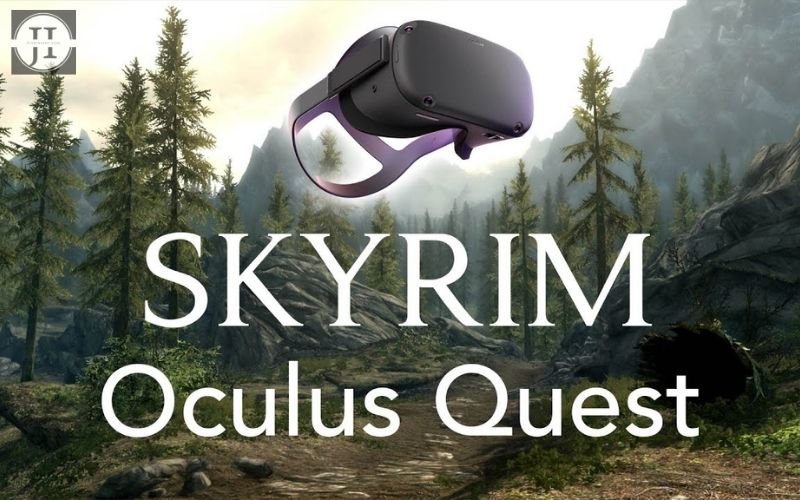As we stand on the brink of an exciting new era in technology, virtual reality (VR) gaming is poised to transform our gaming experiences in ways we can only begin to imagine. This article delves into the future of VR gaming, showcasing groundbreaking innovations, the integration of artificial intelligence, and effective user engagement strategies that promise to elevate gameplay to unprecedented levels. We will explore how social connectivity is reshaping gaming landscapes and analyze predictions for market growth over the next decade. Additionally, we’ll address the challenges that lie ahead and propose viable solutions to ensure a vibrant future for VR gaming. Join us as we navigate the thrilling developments that await both gamers and developers in this dynamic field.
Technological Innovations Shaping The Future Of VR Gaming
The future of VR gaming is inherently tied to continuous advancements in technology. These innovations not only enhance user experience but also broaden the scope of possibilities within virtual environments. Here are some key technological trends that are expected to shape the landscape of VR gaming in the years to come:
- Improved Graphics and Performance: The rise of more powerful GPUs and processing units will allow developers to create more realistic and immersive virtual worlds. Higher resolution displays, better frame rates, and advanced rendering techniques will elevate the visual quality of VR games.
- Wireless Technology: The shift towards wireless headsets is critical for a more immersive experience. As latency decreases and bandwidth increases, players will enjoy a seamless, untethered experience, fostering greater freedom of movement.
- Haptic Feedback Systems: Enhanced haptic technology enables players to feel virtual environments physically. As new devices emerge, the tactile feedback will become a crucial aspect of immersion, making interactions within the game world more lifelike.
- Advanced Motion Tracking: Innovations in motion capture and tracking technologies will allow for more accurate and precise player movements to be reflected in-game. This includes improved body tracking systems that recognize a wider range of movements.
- Cloud Gaming: With the rise of cloud technology, VR gaming is set to become more accessible. Cloud gaming can reduce the need for expensive hardware, enabling a wider audience to experience high-quality VR gaming experiences from various devices.
As these technological innovations continue to develop, the future of VR gaming holds exciting prospects and opportunities for both players and developers, making the gaming experience richer and more engaging than ever before.
The Role Of Artificial Intelligence In Enhancing VR Experiences
As the future of VR gaming continues to evolve, the integration of Artificial Intelligence (AI) is playing a pivotal role in transforming user experiences. AI enhances the realism and interactivity of VR environments, creating a more immersive gaming experience that captivates players.
One of the primary ways AI contributes to this is through adaptive gameplay. By analyzing player behavior and performance, AI algorithms can adjust the game’s difficulty and scenarios in real-time. This personalization ensures that players remain engaged and challenged, tailoring each experience to fit individual skill levels and preferences.
Moreover, AI-driven non-player characters (NPCs) have become more sophisticated, exhibiting behaviors and realistic interactions that mimic human-like responses. This advancement enhances storytelling and narrative depth, allowing players to form emotional connections with characters and the game world.
Additionally, AI can facilitate procedural content generation. This process generates unique game environments and challenges on-the-fly, resulting in a virtually infinite variety of gameplay scenarios. As a result, players can enjoy fresh content in every session, keeping the experience exciting and unpredictable.
Another significant aspect is the implementation of natural language processing, allowing voice commands and dialogues to enhance interactivity. Players can engage in meaningful conversations with NPCs, making the gaming experience feel more organic and immersive.
The integration of AI in VR gaming is set to redefine the landscape. With its ability to create personalized, adaptive, and deeply engaging content, AI will be a cornerstone in the future of VR gaming, bringing players closer to the virtual worlds they inhabit.
User Engagement Strategies For The Future Of VR Gaming
As we delve deeper into the Future of VR gaming, one critical aspect that developers and companies will need to focus on is user engagement. With rapid advancements in technology, maintaining player interest and interaction has become essential. Here are several effective strategies to enhance user engagement in VR gaming:
By implementing these user engagement strategies, developers can create a more compelling experience that resonates with a diverse gaming community, fostering loyalty and excitement within the Future of VR gaming.
How Social Connectivity Is Redefining VR Gaming Landscapes
As we look towards the future of VR gaming, one of the most exciting aspects is the transformation brought about by enhanced social connectivity. VR gaming has evolved significantly, transitioning from solitary experiences to deeply interconnected environments where players can engage with friends and strangers alike in immersive worlds.
Recent advancements in VR technology enable players to create avatars that represent them in virtual spaces, bridging the gap between the digital and the real world. This not only elevates personal experiences but also fosters a sense of community among players. For instance, multiplayer games now include features such as virtual meetups, live events, and shared missions, which allow players to communicate and collaborate in real-time, thereby enhancing the immersive experience.
Moreover, platforms like VRChat and Rec Room highlight the growing importance of social interaction in virtual environments. Users can interact with others through voice chat, gestures, and even custom content, enriching their gameplay experience. This trend is shifting the narrative around gaming; instead of viewing VR primarily as a solitary escape, it is becoming a social hub where players can build relationships and share experiences.
In light of these changes, developers are focusing on creating more interactive and engaging social environments in their VR offerings. This includes integrating community-driven elements such as user-generated content, which allows players to contribute to the game world and shape their environments collaboratively. In essence, the future of VR gaming is not just about solitary adventures; it’s about creating a vibrant social tapestry where creativity and connectivity flourish.
As we advance into the next era of the future of VR gaming, we can anticipate even more innovative social features, including cross-platform play, enhanced networking capabilities, and virtual economies that further enrich player interactions. The sky is the limit as developers recognize the potential of social connectivity, leading us into a future where gaming is not only about competition or achievement but about community and technological companionship.
Predictions For VR Gaming Market Growth In The Next Decade
The future of VR gaming appears to be incredibly promising, with several factors indicating substantial growth in the coming years. Industry analysts predict that the market will expand significantly, driven by advancements in technology, increased consumer interest, and the rising popularity of immersive gaming experiences.
One of the primary predictions involves the market value reaching well over $45 billion by 2030. This growth is expected to be fueled by improvements in hardware and software, making VR games more accessible and enjoyable for a broader audience. As the cost of VR technology decreases, more players are likely to invest in VR systems, paving the way for a larger market.
Moreover, the integration of artificial intelligence and machine learning into VR gaming will enhance user experiences, allowing developers to create more complex and engaging virtual environments. This is likely to lead to an increase in the number of high-quality VR titles available, further attracting players to the medium.
On the consumer side, immersive social features are anticipated to become more prevalent. Platforms facilitating social interactions in virtual worlds will foster a sense of community, which can drive user retention and engagement. This aspect is crucial, as gamers increasingly seek social connections through their gaming experiences.
Additionally, the growth of cloud gaming services and cross-platform accessibility is expected to play a significant role in broadening the reach of VR gaming. With improved internet connectivity and the rise of 5G technology, gamers will be able to enjoy VR gaming without the need for expensive hardware, lowering barriers to entry.
Overall, the future of VR gaming is looking bright, characterized by technological advancements, increased accessibility, and a growing player base, positioning it as a dominant force in the gaming industry within the next decade.
Challenges And Solutions For The Future Of VR Gaming
The future of VR gaming holds immense potential, but it does not come without its challenges. As the industry evolves, developers and companies must navigate various hurdles to ensure a seamless experience for users. Here are some key challenges and potential solutions:
- Hardware Limitations: Many users still face compatibility issues with existing devices. To tackle this, companies should invest in optimizing software to work across a wider range of devices and create more inclusive hardware options that cater to different budgets.
- User Experience Design: VR interfaces can be complex and overwhelm new users. Simplifying the user interface and incorporating more intuitive tutorials can enhance accessibility and user engagement.
- Health Concerns: Motion sickness and eye strain are common complaints among VR gamers. Developers should prioritize research on ergonomics and comfort while designing VR experiences, ensuring that health warnings and safe usage guidelines are prominently displayed.
- Content Variety: The need for diverse and engaging content is critical. Game developers must focus on creating innovative and varied VR experiences beyond gaming, such as educational tools and simulations, to attract a wider audience.
- Social Isolation: Although VR offers immersive experiences, it can lead to social isolation. Incorporating features that encourage social interaction, such as multiplayer options and community events, can foster a more connected gaming environment.
By addressing these challenges proactively, the future of VR gaming can be not only viable but thriving, resulting in a rich and diverse gaming landscape that satisfies a broad range of users.
Frequently Asked Questions
What advancements in VR technology can we expect in the next few years?
In the coming years, we can expect significant advancements in haptic feedback, improved graphics resolution, and more immersive augmented reality integration that will enhance the overall virtual reality experience.
How will VR gaming impact the social aspect of gaming?
VR gaming is likely to enhance social interactions by allowing players to engage in shared virtual environments, fostering a sense of presence and connection with others, making multiplayer experiences more engaging.
What role will AI play in the future of VR gaming?
Artificial intelligence will play a crucial role by creating more adaptive and responsive NPCs (non-playable characters), tailoring gameplay experiences to individual player preferences, and enhancing realism within virtual worlds.
Are there any health concerns associated with VR gaming?
Yes, potential health concerns include motion sickness, eye strain, and issues related to prolonged use. Developers are working on solutions to mitigate these effects, such as incorporating breaks and improving frame rates.
Will VR gaming become more accessible to a wider audience?
As technology advances, we can expect VR gaming to become more affordable with lower-priced headsets and fewer hardware requirements, making it accessible to a broader audience.
What types of VR games are expected to rise in popularity?
We can anticipate a rise in educational and simulation-based VR games, as well as social VR experiences that cater to collaboration and community engagement, rather than just traditional gaming.
How is cloud gaming expected to affect the future of VR gaming?
Cloud gaming will likely reduce hardware limitations, allowing players to access high-quality VR experiences without needing expensive equipment, enabling more players to enjoy immersive gaming.











